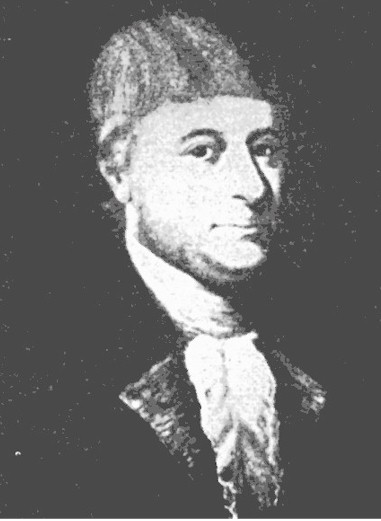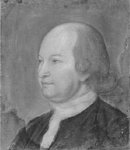First Generation – Early Newport Arrivals
“I will insist the Hebrews have [contributed] more to civilize men than any other nation. If I was an atheist and believed in blind eternal fate, I should still believe that fate had ordained the Jews to be the most essential instrument for civilizing the nations”
– John Adams, Signer of Declaration of Independence

Moses Michael Hays
The narrative of this family begins with the arrival of Moses Michael Hays and his wife Rachel (Myers) to Newport, Rhode Island from New York in 1769. Hays is the son of Judah Hays, one of the early Sephardic Jewish families to arrive in the New World from Spain via Holland. Rachel is the daughter of Solomon Myers, and sister to Myer Myers, one of America’s most prominent early silversmiths. Moses Michael Hays became a wealthy merchant and is recognized as one of the first to introduce
the Scottish Rite of Free Masonry to America and later becomes the Grand Master of King David’s Lodge in Newport and the Massachusetts Grand Lodge. The Hays and Myers families are also part of the original benefactors of Newport’s Touro Synagogue, the oldest Synagogue in America. Moses and Rachel have six children, Judah, Judith, Sarah (Sally), Rebecca, Catherine and Slowey.
The Reverend Isaac Touro was born in Amsterdam to a family that hailed from a long line of Jewish scholars. In 1760 he was invited by Newport’s Congregation Yeshuat Israel (Salvation of Israel) to serve as chazzan and oversee the construction of a new synagogue, which was completed and dedicated on December 2, 1763 for Hanukkah. In June 1773, Touro marries Reyna Hays, the sister of Moses Michael Hays in an elaborate ceremony in the Synagogue that he help build. Officiating at the wedding was Rabbi Isaac Karigal, the first rabbi known to have visited the American Colonies and West Indies during the 18th century. The Touros would have four children Abraham, Rebecca, Judah and Nathan (who died as a very young child).
Hays is best known for challenging the Rhode Island General Assembly request that several of Newport’s prominent inhabitants sign a declaration of loyalty to the American Colonies in 1777. Hays refuses, in a letter and public testimony at the Newport State House (now known as the Old Colony House), particularly objecting to the phrase, “upon the true faith of a Christian.” Only when the phrase was omitted did he sign the declaration. This act is seen by many historians as one of the first religious and civil rights public defenses in the fledging new democracy.

Isaac Touro
During the British occupation of Newport, Hays removes to South Kingston, Rhode Island. Isaac Touro also leaves Newport with family first to New York and then to Kingston, Jamaica where he dies in 1783. At the conclusion of the war, Hays and family move to Boston living in the city’s North End. A year later they are joined by his widowed sister Reyna Touro and her young children Abraham, Judah and Rebecca.
This extended family of Hays and Touro prosper living in the North End of Boston on the fashionable Middle Street (now Hanover). This period also centers on the strong family bond between Newport born Catherine Hays, daughter of Moses, and her first cousin Judah Touro. Historical writings describe the two as having a close relationship through letters that lasted over fifty years. This bond would have a lasting effect on the future generations, particularly the Myers and Forrester clan of 19th century Richmond, Virginia.